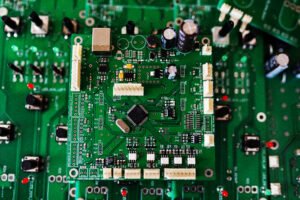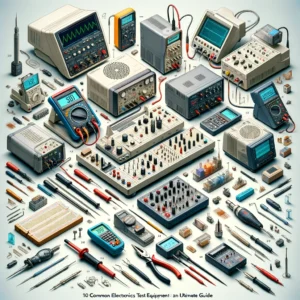Semiconductor VS Chip: Everything You Need to Know
Understanding Semiconductors
What Are Semiconductors?
Semiconductors are materials with electrical conductivity between that of a conductor (like copper) and an insulator (like glass). This unique property allows them to control electrical currents, making them foundational in creating electronic components and devices.
Silicon is the most widely used semiconductor material due to its abundance and favorable electrical properties.
How Do Semiconductors Work?
At their core, semiconductors control the flow of electricity. Their conductivity can be altered by adding impurities—a process known as doping—which makes them invaluable in creating transistors, diodes, and other electronic components.
Understanding Chips
What Are Chips?
Chips, also known as integrated circuits (ICs) or microchips, are small electronic devices consisting of a set of electronic circuits on a semiconductor material, typically silicon.
They can perform various functions, including processing, memory storage, and logic operations, depending on their design and complexity.
How Do Chips Work?
Chips work by integrating millions (or even billions) of transistors onto a tiny piece of semiconductor material. This integration allows for complex calculations and processes to be carried out efficiently within electronic devices.
The Difference Between Semiconductors and Chips
While semiconductors are the materials used in the manufacturing of electronic components, chips are the end products made from these materials. In essence, a semiconductor serves as the foundation upon which chips are built.
Understanding this distinction is crucial for professionals in the electronics industry, as it affects everything from design to manufacturing processes.
Applications
Semiconductors:
- Power Devices: Used in voltage regulation and power conversion.
- Sensors: In devices that detect changes in the environment, such as temperature or pressure sensors.
- Solar Cells: Convert sunlight into electrical energy.
Chips:
- Computers and Smartphones: For processing and memory storage.
- Consumer Electronics: Found in everything from TVs to kitchen appliances.
- Automotive: Used in engine control units, infotainment systems, and safety features.
The Role of pcbpit.com
For those interested in diving deeper into the world of electronics, pcbpit.com is an invaluable resource. Whether you’re a hobbyist looking to design your first circuit board or a professional seeking advanced manufacturing solutions, pcbpit.com offers insights, tools, and resources to bring your projects to life.
From understanding the nuances of semiconductor materials to designing sophisticated chips for specific applications, pcbpit.com supports innovation and education in the electronics community.
Why It’s Important
The distinction between semiconductors and chips is more than academic; it has practical implications for design, manufacturing, and application of electronic devices. Professionals in the field must understand both to make informed decisions and drive innovation.
Additionally, for enthusiasts and students, grasping these concepts is crucial for a deeper understanding of how electronic devices function and are created.
Conclusion
Semiconductors and chips are fundamental to the technology that powers our world. From the basic principles of conductivity in semiconductors to the complex integration of circuits in chips, these components play crucial roles in the development of electronic devices.
Understanding the distinction between them not only enriches one’s knowledge of electronics but also opens up opportunities for innovation and creativity in the field. For those eager to explore this fascinating world further, resources like pcbpit.com provide a wealth of information and support for projects of all sizes and complexities.
In the rapidly advancing field of electronics, staying informed about the basic building blocks of technology—semiconductors and chips—is essential. Whether you’re a professional working on the next big innovation or a curious mind eager to understand the technology around you, the journey into the heart of electronics is both exciting and rewarding.
Share:
More Posts

PCB Ruler: A Comprehensive Guide
PCB Ruler: A Comprehensive Guide What is a PCB Ruler? A PCB ruler is a functional tool made from the same materials as a printed

Thermal Vias: A Comprehensive Guide for PCB Heat Management
Thermal Vias: A Comprehensive Guide for PCB Heat Management Why Heat Management Matters in PCBs Before diving into thermal vias, let’s understand why heat is

PCB Testing Guide: Everything You Need to Know
PCB Testing Guide: Everything You Need to Know This guide will walk you through the essentials of PCB testing, including why it matters, common testing

What Is A Rogers PCB?
What Is A Rogers PCB? If you’ve ever used a smartphone, connected to Wi-Fi, or marveled at satellite communication, you’ve indirectly interacted with a technology

